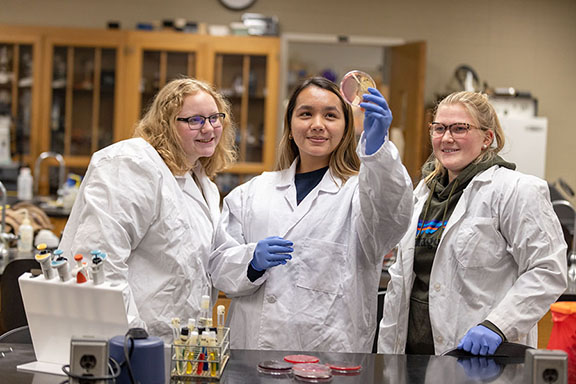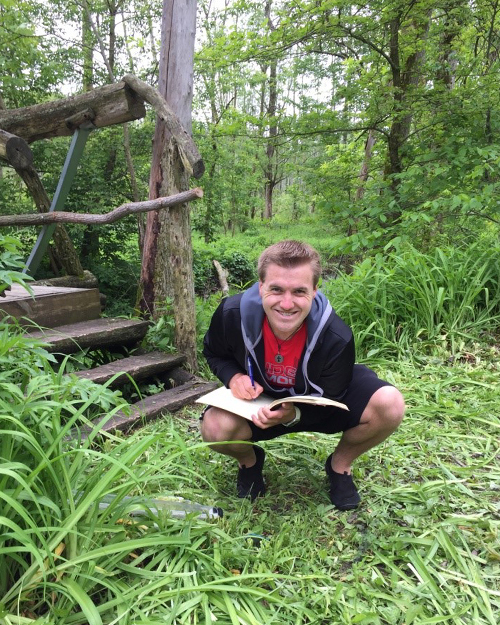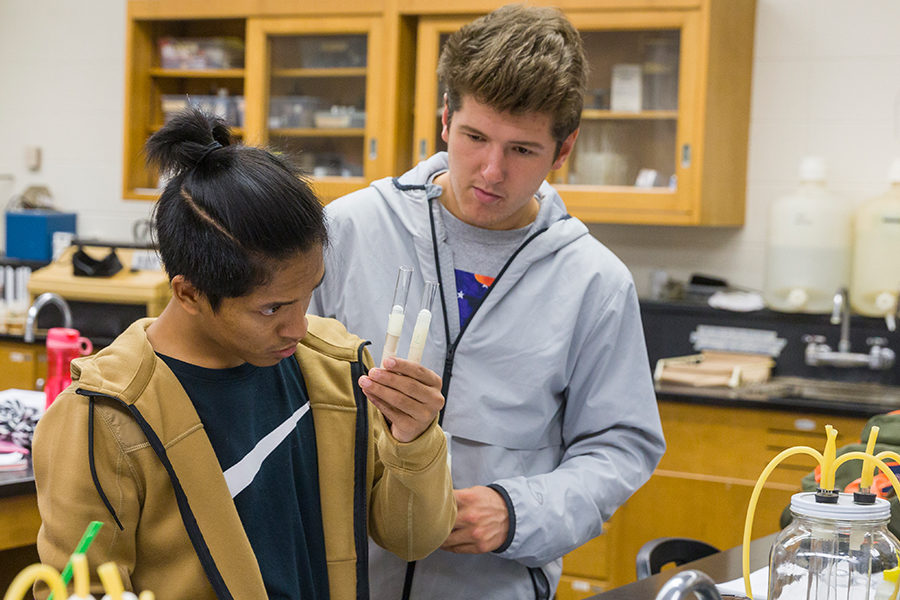
Bachelor's Degree in Physical Sciences
Concentration: Environmental Science (BS)
Request Information
Environmental Science Concentration Overview
If you’re passionate about our environment, Purdue University Northwest’s physical sciences degree with an environmental science concentration can prepare you for a career that makes a difference. This program provides the chemical and biological training needed in essential fields like environmental monitoring and remediation, global policy, meteorology and oceanography.
Department of Chemistry & Physics
The concentration enables you to address today’s complex environmental problems from many angles. Through courses in chemistry, earth science, biology, physics and economics, you’ll gain a broad background that can be applied to environmental problems of all kinds.
The required research experience is a vital step toward launching your career.
Environmental Science Concentration Curriculum
As an environmental science student, you’ll take a balance of general education courses, College of Engineering and Sciences core courses and courses in chemistry, biology and physics.
Our curriculum reflects the interdisciplinary nature of environmental science. Focusing on the physical aspects of the profession, this concentration provides in-depth knowledge of the chemical and geological foundations required for solving problems as diverse as brownfield remediation and climate change.
Build a foundation with environmental science and general education courses.
Sample Courses
- BIOL 10100 – Introductory Biology
- BIOL 10200 – Introductory Biology
- CHM 11600 – General Chemistry
Complete the foundational chemistry and physics courses required to tackle advanced topics.
Environmental Science Course of Study
Sample Courses
- CHM 26505 – Organic Chemistry
- CHM 26300 – Organic Chemistry Laboratory
- CHM 26605 – Organic Chemistry
Expand your knowledge with advanced chemistry and biology courses emphasizing environmental techniques and issues.
Environmental Science Course of Study
Sample Courses
- BIOL 33300 – Ecology
- CHM 32100 – Analytical Chemistry I
- CHM 32400 – Survey of Environmental Chemistry
Complete supporting courses in chemistry, biology and economics, as well as a focused research project.
Environmental Science Course of Study
Sample Courses
- CHM 42400 – Analytical Chemistry II
- BIOL 40500 – Conservation Biology
- BIOL 41300 – Aquatic Ecology
Environmental Science Degree Program Highlights
As an environmental science student, you’ll focus on the field’s chemical, geological, and physical aspects. Your coursework combines a broad mixture of topics with field experiences at Gabis Arboretum and the Indiana Dunes National Park that provide unique, invaluable educational opportunities.


Environmental Science Degree Program Outcomes
In this program, you will learn to solve complex issues, such as soil remediation, air pollution reduction, household waste reduction and clean water. You’ll determine how chemicals move through the environment and their impact on human health and ecosystems. We emphasize critical thinking, data analysis and communication as the basis for your investigations.
Career Paths
With your specialized expertise, you can pursue a number of careers in the field, including:
- Water and quality monitor/manager
- Environmental science advisor
Environmental Science Beyond the Classroom
Environmental Science students have many opportunities to get involved in on-campus activities, including the following organizations:
Employers
Many of our graduates work in quality control and monitoring.
Environmental Science Degree Program Scholarships
Environmental Science students are eligible for scholarships at the university and college level, including:
- Donald Clark Memorial Scholarship
- Nils Nelson Endowed Scholarship
Meet the Faculty

Earn a Bachelor's Degree in Physical Science with a Concentration in Environmental Science at PNW
Purdue University Northwest’s environmental science concentration provides you with the training needed to work in environmental monitoring and remediation, global policy, meteorology or oceanography.
To see how a bachelor’s degree in physical science with a concentration in environmental science from PNW opens doors, from laboratories to boardrooms, take the next step today!








